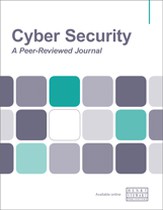Is it time to consider a radical change in the way we organise and manage the response to cybercrime?
Abstract
The growth of cybercrime continues to be a major threat to national security. With high-profile cyberattacks disrupting supply chains around the world, policy makers are constantly looking at ways to tackle it effectively using the levers available to government. But as we have seen over the last few years, the problem continues to grow, forcing policy makers to reconsider their thinking in how to reduce the threat and impact of cybercrime. The election in the UK of a new Labour Government in July 2024 with a large majority provides an opportunity to review the existing approach and implement a more radical solution, informed by best practice elsewhere. The challenge, however, is in building a model that not only brings together a complex group of stakeholders across government and beyond, but which also improves accountability and transparency while future-proofing the response to a rapidly changing policy area.
The full article is available to subscribers to the journal.
Author's Biography
Simon Newman is co-founder of Cyber London, one of 18 cyber clusters across the UK whose role is to support innovation and collaboration in the cyber security industry. He is also a Director of the UK Cyber Cluster Collaboration (UKC3) and a member of the Advisory Board for the Centre for Online Safety, Safeguarding, Privacy and Identity (COSPI). Simon was previously Chief Executive Officer of the Cyber Resilience Centre for London (where he remains on the Board of Directors) and is an Honorary Visiting Fellow at City St George’s, University of London.
